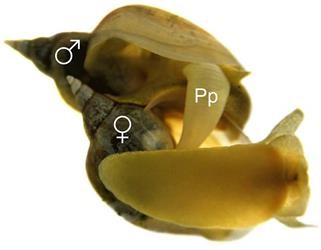The Infertility Website
Infertility Manic Depression
We have the best source for complete information and resources for Infertility Manic Depression on the web.
However, given that fertility in women is known to decline steadily with age, some providers evaluate and treat women aged ≥35 years after 6 months of intercourse without the use of contraception (1). It could be caused by a tumour, taking illegal drugs, or Klinefelter syndrome, a rare syndrome where a man is born with an extra female chromosome.
Problems maintaining erection A man’s ability to maintain an erection is often linked to his hormone levels. Microsurgical Aspects of Varicocele. (PDF, 9 MB) Fertility and Sterility, 1979. Operative hysteroscopy associated with tubal cannulation is helpful to treat cornual obstruction.
More Details Around Infertility Manic Depression

Right here are Some More Information on Pcos Infertility Keto
6,28 Additionally, postcoital testing of cervical mucus is no longer recommended because it does not affect clinical management or predict the inability to conceive. Myoma treatment In general, small and asymptomatic myomas do not require treatment, but the patient should be periodically monitored. The likelihood of fertilization improves significantly for men with low sperm concentrations. A Physical Map of the Human Y Chromosome. (PDF, 160 KB) Nature, 2001. Factors Affecting Fertility (Continued) Various toxic agents, smoking and alcohol may contribute to fertility problems.
Below are Some More Info on Infertility Manic Depression
Sexually transmitted infections (STIs): Chlamydia can damage the fallopian tubes in a woman and cause inflammation in a man's scrotum. Uterine fibroids Fibroids are noncancerous growths in the uterus.
Below are Some Even more Resources on Pcos Infertility Books
389 KB ARTICLES FROM THE 1980s Microsurgical Reversal of Female Sterilization: The Role of Tubal Length. (PDF, 2 MB) Fertility and Sterility, 1980. Fertility Evaluation of the Male Partner: Semen Analysis Semen analysis is an essential part of the evaluation. These include: non-steroidal anti-inflammatory drugs (NSAIDs) – long-term use or a high dosage of NSAIDs, such as ibuprofen or aspirin, can make it more difficult to conceive chemotherapy – medicines used for chemotherapy can sometimes cause ovarian failure, which means your ovaries will no longer be able to function properly neuroleptic medicines – antipsychotic medicines often used to treat psychosis; they can sometimes cause missed periods or infertility spironolactone – a type of medicine used to treat fluid retention (oedema); fertility should recover around 2 months after you stop taking spironolactone Illegal drugs, such as marijuana and cocaine, can seriously affect fertility and make ovulation more difficult. The agents most often associated with infertility are the alkylating agents such as cyclophosphamide. The sperm must provide the zygote with DNA, centrioles, and activation factor for the embryo to develop. Next, the spermatids undergo the process of spermiogenesis (through stages named Sb1, Sb2, Sc, Sd1, and Sd2), which involves the casting of excess cytoplasm away as a residual body, the formation of the acrosome and flagella, and the migration of cytoplasmic organelles to their final cellular location. As treatment begins, couples may experience cycles of optimism and despair with each passing menstrual cycle. As a woman gets older, the number of her eggs decreases rapidly.
Previous Next
See also
Ayurvedic Treatment for Infertility in Female in Hindi
Infertility Causes and Solutions
Infertility Uterus/fallopian Tubes